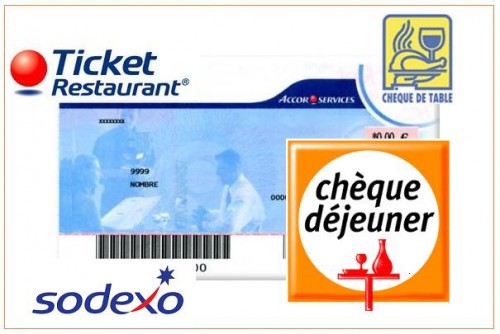4 Benefits of Working in France
The French have a bad reputation when it comes to working. The lack of enthusiasm is hard to miss when interacting with any French employee. Deadlines are missed, vacation time and sick-leave will be abused, punctuality is borderline mythical, and cheating rather than proving oneself is expected. The “I can do this, but you can’t” […]
The French have a bad reputation when it comes to working. The lack of enthusiasm is hard to miss when interacting with any French employee. Deadlines are missed, vacation time and sick-leave will be abused, punctuality is borderline mythical, and cheating rather than proving oneself is expected. The “I can do this, but you can’t” attitude accompanied by the, “I’m waiting for the opportune moment to throw you on the Metro rails,” that fuel the French work mentality is enough to drive any foreigner crazy.
There are two sides to every story, and in the case of the French employee’s lack of interest can be justified to an extent. The French work system is set up in a way that not only allows less than efficient performance, but actually encourages it. France is a country of Social government-loving French folk, so the French government has had to adapt. In order to convince the French that working for a living is a good thing, the government had to lay on the benefits. These benefits did convince the French to work, but not rigorously. Employees in France use any chance they can to avoid working by exploiting their rights. Here is a list of four great reasons the French have not to work as whole-heartedly as they should.
1. Employers issue packets of “Tickets Restaurants” with every pay check. Not every employer in France hands out these restaurant tickets—intense employees working at establishments such as McDonald’s do not receive them. Anyone with a “decent” position in France will receive a booklet with a varying amount of tickets, worth different amounts depending on the generosity of the employer. These tickets are accepted in some grocery stores and any restaurant or café. The idea behind the packet of tickets is to allow French employees to enjoy a nice meal at an actual restaurant during lunch, rather than grabbing a cheap sandwich or burger. The employers believe that a well-fed employee will come back to work happy and productive. What generally happens though is that the employee goes to a restaurant where he or she spends most of the time waiting rather than eating. This results in late, grumpy employees, because they didn’t have time to finish their meals. In other cases, they come back tipsy from the lunch wine, which doesn’t boost productivity.
2. They only have 35 hour work weeks in France. As in many countries, the average employee will work more than the legal amount of hours per week. Since the work week is shorter in France than other countries, the expected over-time is also less. French employees do not work more than 36-40 hours a week unless they are either a CEO or a politician. The French are not necessarily lazy, they’ve just been conditioned to hit work failure at 35 hours a week.
3. The French enjoy a four week paid vacation per year. This is another government benefit that does harm as well as good to the business side of France. Employees are very unproductive when they near vacation time and equally unproductive for weeks after their vacation is over. This is because they “must readjust.” On the bright side, they are more refreshed and tanned.
4. French employers are not allowed to terminate an employee without first proving the existence of Avalon itself. French employees are protected against termination if they sign an “undetermined length contract.” This would be roughly equivalent to being tenured in the States. They would have to beg to be fired while threatening to blow up the building. So what do French employees do? They exploit the system. They work hard only when necessary, treating deadlines like unimportant dates. They read their personal emails, go on Facebook, read magazines, talk on the phone with friends, take fifty coffee and cigarette breaks a day, show up late, take extended lunches, and leave early. This is why a simple process turns into a long, aggravating, unnecessary nightmare in France.
The French enjoy a lot of wiggle room when it comes to working. They have longer lunch hours, more paid vacation time, more break time during the work day, fewer consequences for being irresponsible, shorter work weeks, and in the end they know that their employer cannot fire them easily. The result of all of these work – related luxuries is that the French slack off a lot, which has earned them a bad reputation. Fortunately, there is a large percentage of French employees who work hard enough to make up for some of the slack, which would explain the strong French economy.
Jacqueline Perrier-Gillette is currently a resident of Paris, France, where she lives with her husband. Together the two of them operate their small translation company, giving Jacqueline the opportunity to observe the French and their culture up close. She is an avid reader, writer, and student of foreign languages.
By Jacqueline Perrier-Gillette






